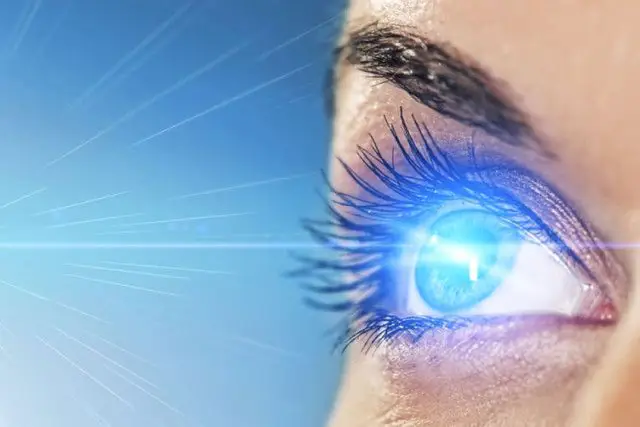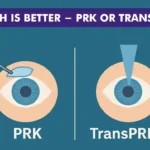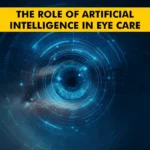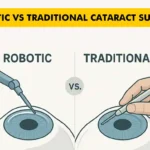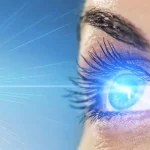Sun’s Ultraviolet rays have been known to cause eye damage, including cataracts,degeneration, pingueculae, pterygia and photokeratitis that can cause temporary vision loss. This UV radiation present in sunlight is absorbed by the lens of the eye and allows chemicals called free radicals to form inside the lens. Over time, free radicals may damage the lens resulting in formation of cataracts.
A cataract is a clouding of the eye’s natural lens, the part of the eye that focuses the light into our retina helping us see. Let’s understand how this happens.
Absorption by lens and Oxidative Stress
The human lens strongly absorbs UV and blue light and thus acts as a protective shield for the retina. Prolonged exposure of the lens to UV and blue light can lead to gradual yellowing of the lens and eventually to cataract formation. Most authorities now believe that UV and blue light absorbed by the lens is a major contributing factor to cataract formation.A new study offers an explanation for how years of chronic sunlight exposure can increase the risk of cataract. The study firms up a link between the sun’s damaging rays and a process called oxidative stress. Dr. Nagaraj and his colleagues tested the effects of UVA light on proteins and chemicals found in lens cells.
They found that in the absence of oxygen, UVA light can trigger a chain reaction that begins with amino acid derivatives called kynurenines, and ends with protein glycation in the lens. In earlier work, they also showed that mice genetically engineered to over-produce kynurenines develop cataract by 3 months of age. In the current study, when lenses from these mice were exposed to 2 hours of intense UVA light, they accumulated damaged (glycated) proteins. This shows how UV rays contribute towards cataract formation.
Prevention and Protection against UV Rays
Both the retina and lens should be protected throughout life from both UV and blue light radiation to delay the onset of cataract and age related macular degeneration. Eyewear that absorbs UV rays gives you the most protection. All types of eyewear, including prescription and non-prescription glasses, contact lenses and lens implants, should absorb UV-A and UV-B rays. For UV protection in everyday eyewear, there are several options like UV-blocking lens materials, coatings and photochromic lenses. UV protection does not cost a lot of money and does not get in the way of seeing clearly.To best protect your eyes from the sun’s harmful UV and HEV rays, always wear good quality sunglasses when you are outdoors. To protect as much of the delicate skin around your eyes as possible, try at least one pair of sunglasses with large lenses or a close-fitting wraparound style for added coverage.
Look for sunglasses that block 100 percent of UV rays and that also absorb most HEV rays. Your optician can help you choose the best sunglass lenses for your needs. Be extra careful in UV-intense conditions. Sunlight is strongest mid-day to early afternoon, at higher altitudes, and when reflected off water. Avoid direct sunlight exposure at all costs.All these facts make us conclude that our eyes are in dire need of protection from the harmful UV rays.
Experts at Centre for Sight will help you with tips and best practices which can be used for protecting your eyes against the adverse effects of UV radiation.
Article: UV Light’s role in Cataract Formation – Centre for Sight
Author: Dr Abhishek Goel | Mar 21 2016 | UPDATED 02:00 IST
*The views expressed here are solely those of the author in his private capacity and do not in any way represent the views of Centre for Sight.
